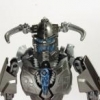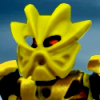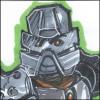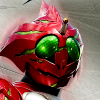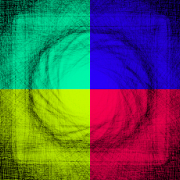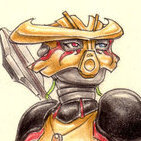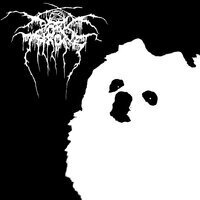Leaderboard
Popular Content
Showing content with the highest reputation on 03/23/2015 in all areas
-
Trying to modernize the Chronicler and Jaller, and eventually the rest of the matoran versions of the Toa Mahri. Jaller with a custom Kohlii stick Takua with a Chronicler Staff6 points
-
I'd like to describe to you all the most memorable scene from my morning walk into school. I emerged from the tunnel under the train tracks and headed towards the last intersection on my walk on my way to school. In the bare bushes of one of the office buildings on the street twittered a bunch of small sparrows, not a care in the world. I watched them as they chattered, when all of a sudden a brown blur appeared in my periphery. A hawk (I believe a broad-winged hawk) was in a dive, ready to snatch up a meal from the group of sparrows. It swooped, then crashed into the bare branches of the bushes. I could tell immediately after it crashed that it was unsuccessful in its quest, and as it looked around during its shocked stupor, I could see in its face the expression of "Well, this is just great." The poor thing sat there for a moment and eventually freed itself, its ego more bruised than its body, as it flew atop the building and reconsidered what its next move was. All in all, it was really cool, and I'm glad I got to witness it.4 points
-
4 points
-
I guess you could say that hawk was a real... -sunglasses- Bird brain. YYYYEEEEEEEAAAAAAHHHHH4 points
-
I got a letter from Samantha, actually. She's apparently gone backpacking through the Atlantic Ocean to find herself. So... that's a thing. Sir Fumptlebumper Stalgerbert.I desire all of the grail and doesn't afraid of anything. Don't make me play favorites with my children. Not sure if you did. I have played chess, however it's been a while. I don't know too many strategies, but I do remember how all of the pieces move. My last match was with my brother some time ago. I won. Before that I faced my cat. I think we called it a draw. Oh geez, I love all of these starters... I think I'd go with turtwig because I have so many other water and fire starters raised. I ate them. I ate all of them. Pfft. Like I'd tell you. I bet you don't even own a sombrero! I think I'd be a bird of some sort. Maybe a raven or a seagull. Owls are cool as are hawks. Flying sounds nifty. ^^ Freshly baked bread still hot from the oven is probably one of the best things ever. I also like French Buttercream that I've made before. Super decedent. My first language is English. I still don't know how it works, honestly. I studied Spanish for a little over three years, but by now most of it is forgotten. I have also picked up a few Japenese words from being weeaboo trash and watching subbed anime instead of the dub.4 points
-
Took a few weeks, but everything people have asked me to re-post that I had archived has been re-posted. Apologies to @fishers64 because I did not think to save Mata Nui's Performance Review and to @meglatorian because not only did I not save The Three Bohroketeers, but I completely forgot I wrote it! If anyone happens to have those topics backed up, I'm sure both they and I would be very grateful to get to read them again. Also to note, there are still a few stories in my own private archive. They're largely earlier work or stuff that didn't get an overwhelming critical reception, but I could be persuaded to re-post them if anyone really wants to read them. Anyway, now that that's out of the way, maybe now I can focus on making new stuff. Stay tuned.4 points
-
To be honest, I'm just as baffled as you are. But that's because I heart happy endings. In fact, that was one of the things I loved about Gen1 Bionicle - despite how dark the series often got, every arc had a happy ending. With a cool lesson and/or epicness attached to it. But in my people imagination, the only thing I can come up with is an analogy. And my thought is James Patterson's Maximum Ride. After the third book of the orginal trilogy, Saving the World and Other Extreme Sports, the series largely took a turn for the worst, with stuggling storytelling, jokes that grew staler and staler, until we finally got the bad end cynically advertised in the first book. A lot of fans prefer to believe Saving the World is the end, even though that series was never meant to end on a high note. That's because the rest of the series is so poorly told compared to the first three books that ignoring it feels like a viable option. So basically, going back to Bionicle, it really depends on what you prefer, "quality" of story versus ending and thematic consistency. If you hate 2009-2010 with a burning passion, no amount of statements about thematic consistency will save you. A better response is thinking of ways 2009 could be improved to be quality rather than axing it altogether, as this is a better attitude about life - improving things instead of saying "there is no way to have a happy ending that is thematically consistant." and quitting.3 points
-
2 points
-
You and the other people who share that opinion seem to fundamentally misunderstand what makes a good tragedy. Macbeth is a good tragedy because the "hero" isn't that much of a hero at all. He makes a large number of bad decisions and villainous actions that ultimately lead to his demise at the hand of Macduff. Citizen Kane is a good tragedy because it shows the story of a man who builds himself up from nothing, but allows his wealth and power to get to his head and drives off all the people he cared about before eventually dying alone and unloved in his mansion. The common plot thread that makes a tragedy meaningful is that the protagonist has a "tragic flaw" that eventually drives their story to a bad end. Bionicle had nothing like that. Whose actions are responsible for Makuta's victory? Essentially, Makuta's alone. The Toa essentially did everything right, and the fact that their actions brought about Makuta's return results solely from Makuta's hypercompetent planning skills that covered every detail and ensured that the only choices the Toa could make would further his own plans. If given the chance to do it all over again, the Toa could not have acted differently and prevented Makuta's victory, because Makuta was just that good. And the only "message" such an ending would send is that the victory of evil over good is inevitable and unpreventable, which contradicts every single message the story had ever conveyed previously. The ending we did get was rushed, but it was fitting for the series, because it was consistent with the series' overall themes of good triumphing over evil and teamwork allowing heroes to overcome insurmountable odds. And more importantly, even if you dispute its quality, it doesn't ruin the entire storyline by undermining every lesson it taught and rendering every previous victory meaningless. The fact that whiny fans like yourself would rather have a terribly written twist ending that ruins Bionicle over a slightly rushed but appropriate conclusion is an insult to every fan who ever actually cared about and understood the story and its characters.2 points
-
2 points
-
To me it seemed people were saying "I would prefer something that supports an imaginative conclusion rather than a shoehorned one". And don't get me wrong, I loved 2010's end (even if 2009 was a necessarily overlong detour). But if given the binary choice of a completely open world with no clear plot in hand - which is more or less what we ended up with - versus a definitive cliffhanger, I can see why people would go with the latter. Ending on a "high" note, as it were, instead of languishing. Or maybe people use it as shorthand for the giant robot twist and not the Makuta takeover twist, although that would have been an incredibly lame ending, not giving the villain any sort of due other than to be a massive nuisance.2 points
-
2 points
-
How do you feel about misleading literally several people regarding the scope of your knowledge of zoology by falsely adopting the name of a most respectable man? You are walking through a park when you suddenly hear a satisfying crunch under your feet. (you were wearing big ol metal boots because of reasons) You look down and see a crushed 2x2 brick. Looking closer, you find it to be wearing a tiny little name tag. "Samantha." At last, your quarry has been found, yet you have already destroyed it. What do you do?2 points
-
Until I finally get and print on some water slide decals, I've made the first version of Green Lantern Booster Gold: Now to make Skeets! -CF2 points
-
Just a bit of a "For Your Information," I opened a certain letter today. Starting on August 5th, I won't be available for a whole two years. Call it an "Extended Service Vacation" if you will. I will be among the people of Berlin, Germany and the surrounding regions, working hard and performing service. Though it's a bit of an adjustment, I'm actually really excited. I've been studying German for the past four years and I can't wait to use it. And who knows, I might happen to knock on the door of an old friend of mine... No need to get worried yet. I still have a few good months of posting to get in first. Hopefully I can wrap things up over in Bionicle RPG. So, feel free to ask questions below, and I'll do my best to answer them within BZPower's Rules and Guidelines. And if you happen to see a guy in a black suit with a nametag walking around in a few months, give him some consideration.1 point
-
Realized I hadn't done one of these in a while. So, yeah, literally any topic is on the table (within bzp rules of course). Just know that while my username is currently Nigel Thornberry, my actual understanding of zoology is rather limited. XP1 point
-
How can ANYONE say in good conscience that the Bionicle story should have ended with the villain victorious and all hope extinguished? It would be the ultimate disrespect to the rest of the story, undermining every single lesson the Bionicle story ever tried to teach. Yes, not all stories have happy endings. But endings, happy or unhappy, should MEAN something. Ending Bionicle with despair would have zero meaning, being "edgy" and "dark" but also "terrible" and "idiotic". Sometimes I think people proclaiming their love of G1 have mixed up the meanings of "love" and "hate".1 point
-
Remember that Okoto story I've mentioned? This is it, people. In an alternate version of the 2015 storyline where the Toa failed to save the island, YOU (the Protectors) must now save the island. ANNOUNCING... What I'm looking for is anyone interested in being a character in this story. This story will be standalone; no prior reading is required, and there will be no sequels. This shall be my final "major" writing project on BZPower, and I'd love it if all of you signed up to join the ride. Name: (Self-explanatory; I'd prefer your display name, or most commonly known variant) Gender: (Also self-explanatory, I think. This can be anything - what you personally identify as, or what you'd like the character to identify as) Element 1: (This is your preferred element; canon elements only, please. That's Fire, Ice, Earth, Water, Jungle, or Stone) Element 2: (If I find that too many people have the same element above, I'll look at this one) Other: (Any additional info you want to include; keep in mind that I will use the stuff here as a basis of inspiration, not as actual backstory. This section can include the weapon your character favors, or perhaps their personality....) Role: (Do you want to sign up for a role?) Roles I'm Looking For Obviously, there needs to be some sort of structure on Okoto - otherwise, how can the Protectors hope to defend their home? HUNTERS X1: These characters serve as the elite defense force; the best fighters on the island. (ONLY ONE HUNTER SPOT REMAINS) all gone! LEADERS X2: I'm looking for a leader from each element type to serve as the "Guardian/Leader/Turaga" type role for each elemental region, and then an additional two who will serve as advisers for the leader of the island. (I AM STILL LOOKING FOR LEADERS FOR STONE, AND ONE MISC.) --- OTHER INFORMATION Decimation will release on April 22nd. Before any of you ask or predict or start to bother me about it - no, this is not related to anything I have written before. Except that this is also a story where you get to be characters. Signups will remain open until March 19th. The sooner you sign up, the higher chances you have of playing a major role!1 point
-
1 point
-
I think "The Captain" would be a better title for Jaller than just "The Leader". But anyway, cool revamps! I feel like their legs could afford to be a bit shorter, and I like Jaller's feet more than Takua's, but that's the extent of my gripes. The colors and textures are awesome!1 point
-
LEARNING MATORAN - LESSON 6 - Well, it’s been a long time. Time makes for changes. Change is scary. But after a long hiatus, I’ve worked up the motivation to post another installment of this project. Recently, I have actually been surprised to see some interest in the continuation of this endeavor, and for that I am grateful. I’m afraid the changes to this conception of the Matoran Language have been significant--enough so that some of the previous lessons are now a bit outdated. This installment will deal with a more in-depth description of verbs in Matoran. Luckily, I never delved too deeply into the verbal system in previous lessons, so the changes won’t really be apparent. The pronominal system is largely intact, so check out Lesson 5 if you need a refresher. Nouns won’t make an appearance at all, so you don’t have to worry about them. One extremely minor change: I have been using the macron diacritic over a vowel to indicate a long vowel (ā, ē, ō, etc.), mainly as a space-saving convention. A double vowel is technically more in line with the orthography of Bionicle names, and it can still be used. One final note: the tone of this “revised” lesson may be slightly less user-friendly than the tone of prior lessons. I’m afraid that that is an unfortunate result of the more in-depth nature of the topics discussed here. If you are really interested in learning more about some particular facet of this version of the Matoran Language, but find that the discussion here is worded obtusely or in a confusing manner, or if you have any general questions at all, feel free to leave a comment and let me know or send me a PM. Otherwise, have fun. I. Verbs: Overview. Verbs in Matoran are different from the typical English verb. They are made up of a stem and a verbal particle. There are three major verbal particles that will be mentioned here: ha, ya, and ma. These particles basically serve to indicate that the stem with which they are paired is of the category “verb” (rather than another category, such as “noun” or “adjective”). Some examples of common verbs are ka ma “to move”, ora ha “to speak”, and mat ya “to use/master”. The combination of stem+particle will be referred to as the verbal complex. This complex does not always form a rigid unit, since the particle can be separated from the stem in many cases. A few examples will illustrate (recall that the first person subject pronoun is o “I”): 1) a. o ka ma “I move.” b. o ma ka “I do move.” c. o ora ha “I speak.” d. o ha ora “I do speak.” (1a) compared to (1b) and (1c) compared to (1d) show one particular difference in the positioning of the particle with respect to the stem. If the particle is placed before the stem, it serves to emphasize the “reality” of the event described, much as in English. Placing the particle after the verb is the more standard procedure, however. Note that, in both cases, the subject (o “I”) precedes the entire verbal complex (stem+particle). It is a general rule for subjects to precede the verbal complex (especially when they are pronominal). The particle ya is slightly irregular compared to ha and ma. When it is positioned before the stem, it is essentially “split”, leaving behind a vowel i, while a is displaced before the stem as usual (mat ya > a mat i). In writing, the stem and particle can be written either as separate units (as above), as a single unit (i.e., kama, maka), or as separate units joined by a dash (ka-ma, ma-ka). It is usually standard procedure to write the stem and particle as a single unit when the particle follows the stem (kama), but as separate units (joined by a dash or not) when the particle precedes the stem (ma ka, ma-ka, but not usually maka). These are not hard-and-fast rules, but I will follow them in most cases for the sake of clarity in the discussions that follow. II. Verbs: Inflection. Verbs in Matoran are inflected for Tense and Aspect. Tense takes the form of Present Tense, Past Tense, and Future Tense. Aspect takes the form of Imperfective Aspect (non-completed action) and Perfective Aspect (completed action). IIa. Tense. Tense is encoded on the verbal particle by modification of the basic form of the particle. Present Tense is the simplest, with no change to the particle: 2) a. oraha > o oraha “I speak.” b. matya > o matya “I use (smthg.)” c. kama > o kama “I move/go.” Past Tense changes the vowel of the particle to -ō (can be written -oo or just -o in shorthand; -ō develops from earlier -ā, showing that the formation of the past tense was originally just lengthening of the particle vowel a > ā): 3) a. ora ha > o orahō “I spoke.” b. mat ya > o matyō “I used (smthg.)” c. ka ma > o kamō “I moved/went.” Future Tense changes the vowel of the particle to -ē (can be written -ee or just -e in shorthand; -ē develops from an earlier diphthong -ae, showing that the formation of the future tense was originally the addition of a vowel -e to the particle vowel -a > -ae). 4) a. ora ha > o orahē “I will speak.” b. mat ya > o matyē “I will use (smthg.)” c. ka ma > o kamē “I will move/go.” Tense inflection can also occur with the reversed particle+stem configuration, in which case the tense-marked particle is simply displaced before the stem (e.g., orahō > hō-ora, matyē > ē-mati, etc.). IIb. Aspect. Aspect is encoded by the addition of an aspectual particle to the verbal complex. If no aspectual particle is added, the interpretation is ambiguous between the different types of aspect (e.g., imperfective, perfective, etc.). Aspectual particles always follow the verbal complex, regardless of whether or not the complex is stem+particle (e.g., ora ha) or particle+stem (ha ora): Imperfective Aspect is equivalent in meaning to the progressive construction in English (be+...-ing: "I am/was/will be playing with Legos."). It is indicated by the addition of the particle ana to the verbal complex. This particle frequently merges with the stem or particle preceding it, taking on the form of a suffix more than an independent particle. In such cases, it can be written either as -na or -‘na. The imperfective particle can be used with all tenses: present, past, and future: 5) With present tense: a. ora ha > o oraha ana > o orahana OR o oraha’na “I am speaking.” b. mat ya > o matya ana > o matyana OR o matya’na “I am using (smthg.)” c. ka ma > o kama ana > o kamana OR o kama’na “I am moving/going.” 6) With past tense: a. ora ha > o orahō ana > o orahōna OR o orahō’na “I was speaking.” b. mat ya > o matyō ana > o matyōna OR o matyō’na “I was using (smthg.)” c. ka ma > o kamō ana > o kamōna OR o kamō’na “I was moving/going.” 7) With future tense: a. ora ha > o orahē ana > o orahēna OR o orahē’na “I will be speaking.” b. mat ya > o matyē ana > o matyēna OR o matyē’na “I will be using (smthg.)” c. ka ma > o kamē ana > o kamēna OR o kamē’na “I will be moving/going.” These tense/aspect combinations can also occur with the reversed particle+stem configuration, in which case the aspectual particle still follows the verbal complex and instead attaches to the stem itself (rather than the particle): 8) With present tense: a. ha-ora > o ha-ora ana > o ha-orana OR o ha-ora’na “I am speaking.” b. a-mati > o a-mati ana > o a-matyana “I am using (smthg.)” c. ma-ka > o ma-ka ana > o ma-kana OR o ma-ka’na “I am moving/going.” 9) With past tense: a. ha-ora > o hō-ora ana > o hō-orana OR o hō-ora’na “I was speaking.” b. a-mati > o ō-mati ana > o ō-matyana “I was using (smthg.)” c. ma-ka > o mō-ka ana > o mō-kana OR o mō-ka’na “I was moving/going.” 10) With future tense: a. ha-ora > o hē-ora ana > o hē-orana OR o hē-ora’na “I will be speaking.” b. a-mati > o ē-mati ana > o ē-matyana “I will be using (smthg.)” c. ma-ka > o mē-ka ana > o mē-kana OR o mē-ka’na “I will be moving/going.” Perfective Aspect is equivalent in meaning to the perfect construction in English (have+...-ed: "I have/had/will have played with Legos."). It is indicated by the addition of the particle anga to the verbal complex. This particle frequently merges with the stem or particle preceding it, taking on the form of a suffix more than an independent particle. In such cases, it can be written either as -nga or -‘nga. The perfective particle can also be used with all tenses: present, past, and future: 11) With present tense: a. ora ha > o oraha anga > o orahanga OR o oraha’nga “I have spoken.” b. mat ya > o matya anga > o matyanga OR o matya’nga “I have used (smthg.)” c. ka ma > o kama anga > o kamanga OR o kama’nga “I have moved/gone.” 12) With past tense: a. ora ha > o orahō anga > o orahōnga OR o orahō’nga “I had spoken.” b. mat ya > o matyō anga > o matyōnga OR o matyō’nga “I had used (smthg.)” c. ka ma > o kamō anga > o kamōnga OR o kamō’nga “I had moved/gone.” 13) With future tense: a. ora ha > o orahē anga > o orahēnga OR o orahē’nga “I will have spoken.” b. mat ya > o matyē anga > o matyēnga OR o matyē’nga “I will have used (smthg.)” c. ka ma > o kamē anga > o kamēnga OR o kamē’nga “I will have moved/gone.” These tense/aspect combinations can also occur with the reversed particle+stem configuration, in which case the aspectual particle still follows the verbal complex and instead attaches to the stem itself (rather than the particle): 14) With present tense: a. ha-ora > o ha-ora anga > o ha-oranga OR o ha-ora’nga “I have spoken.” b. a-mati > o a-mati anga > o a-matyanga “I have used (smthg.)” c. ma-ka > o ma-ka anga > o ma-kanga OR o ma-ka’nga “I have moved/gone.” 15) With past tense: a. ha-ora > o hō-ora anga > o hō-oranga OR o hō-ora’nga “I had spoken.” b. a-mati > o ō-mati anga > o ō-matyanga “I had used (smthg.)” c. ma-ka > o mō-ka anga > o mō-kanga OR o mō-ka’nga “I had moved/gone.” 16) With future tense: a. ha-ora > o hē-ora anga > o hē-oranga OR o hē-ora’nga “I will have spoken.” b. a-mati > o ē-mati anga > o ē-matyanga “I will have used (smthg.)” c. ma-ka > o mē-ka anga > o mē-kanga OR o mē-ka’nga “I will have moved/gone.” IIc. Stem changes and irregularities. Oh dear! You thought you were going to get off easy, didn’t you? Well, don’t be too nervous: most of these “irregularities” are pretty straightforward: - Verbal complexes containing the particle ha exhibit a strengthening of h to kh when it occurs between vowels. Thus: 17) a. ora ha > orakha (basic present tense) b. ha ora > ha-ora (basic present tense, particle+stem order, no strengthening) c. ora ha ana > orakhana (present imperfective) d. ha-ora ana > ha-orana (present imperf., particle+stem order, no strengthening) - Verbal complexes containing the particle ma in which the stem ends in a vowel (e.g., ka ma “to move/go” but not jut ma “to decay”) exhibit an assimilation of m to n in the presence of the imperfective particle ana, along with an overall reduction of the verbal complex itself. This only occurs in the present tense: 18) a. ka ma ana > kamana > kanna (present imperf.) b. ka mō ana > kamōna (past imperf., no assimilation/reduction) c. jut ma ana > jutmana (present imperf., no assimilation/reduction) [Does (17a) look familiar? How about (18a)? If you’re familiar with the previous Lessons (Lesson 3, to be precise), you may recognize that these “irregularities” are essentially the same as the “stem gradation” of older versions of the Matoran Language. The end result is very similar, but the original system of “stem gradation” had no real etymological basis, so it was significantly revised. Is it a blast from the past, or just a horrible over-complication? I don’t know!*] *I don’t care!1 point
-
I think that depends if that person does to like more do look if they really even go want decided. No. All many space. I will allow this. Also thanks! Though admittedly it is a goofy industry to get into. XD. (Then again, what isn't?)1 point
-
I wish we could type things in different fonts in search engines. Sometimes I search things and I'm surprised they actually exist. Sometimes I search things and I'm disappointed they don't exist. Sometimes I search things and I end up with completely irrelevant results. And for some reason, over the past few days, my mind has been wanting me to say 'Telephone' as if it were the pinnacle of all humour. What's so humorous about the word telephone, mind? I'd like to know why I giggle at the word telephone. Telephone. Telephone. Telephone. Te-le-phone. Why must I find this word hilarious suddenly? It'll go away eventually, hopefully, like the many other things I find humorous for six days and then stop thinking about. Almost posted a blog entry suggesting that anthropomorphic telephones are the enemy for BIONICLE 2017. Glad I didn't, that's a clear attempt at trying to be funny. Trying too little or too hard, and I find that humour ends up being forced and unfunny, you have to be told it's apparently funny. Granted, people have different senses of humour, but nobody thinks telephones are hilarious other than my stupid and unfunny mind right now. Once the 'hahaha randomness!' factor fades, so does the humour. Also, don't play things that are survival-horror-ish at 01:00 in the morning. Also, I'm suddenly curious to ask the following, about games, specifically, video games: What's your favourite genre of game? What's your favourite game series? What's your favourite stand-alone game not part of a series? What's your favourite expansion to a game (not downloadable content - an expansion is something much larger, at least that's how I choose to perceive the word)? What's your favourite DLC of a game? What's the worst game you've ever played that isn't that E.T. game or that superman game or any famous bad games? What games are you looking forward to? BIONICLE G2 gets a game. What genre is it and what is its defining mechanics? What game has the best music? Seriously: what's funny about telephones?1 point
-
If you could be anyone/anything for a day, who/what would you be? What is your favourite food? How many languages do you speak?1 point
-
1 point
-
1 point
-
What is the location of a 2x2 LEGO brick that goes by the name Samantha? (Oh come on you knew it was coming.)1 point
-
@Dotcom Answer one Answer two @Capn Submiki - My dreams are dreary ethereal experiences where the most insane and peculiar events unfold in a disorderly fashion. So... maybe.1 point
-
1 point
-
ARPGSouls>Metroid>Paper MarioThe World Ends With You (Edited because lol, I forgot about it until the music question. Bastion is a solid second, though)Artorias of the Abyss seems like it qualifies.Gonna have to mirror Old World Blues here, actually.I dunno, I don't play many games I wouldn't enjoy.None in particular, at the moment.Probably a shooter, similar to Heroes.The World Ends With You>Dark Souls>Metal Gear Rising: RevengeanceGlitzville phone booth. 'Nuff said.*Snaps fingers*1 point
-
I don't think I mentioned it under your confirmation of BFVA, but I live 20 mins away from the Dulles Expo Center, so if at any point you need anything (a tour guide for the museums, a ride somewhere, even a late night recommendation for a place to eat dinner), feel more than free to send me a message or anything! Hopefully Sumiki and others can attest, at least, to my willingness to go on and on about the museums here and whatnot. Anywho, super glad you're joining us! (And don't worry about the social awkwardness thing, because not only are you much cooler than many of us, but you can do what we do to forget our social awkwardness, which mainly involves hats, Galidor, and overused jokes that we beat to the death. Mainly a combination of all three )1 point
-
1 point
-
LEARNING MATORAN - LESSON 7 - We’re back! Might as well jump right in. This lesson, we’ll be looking at some aspects of the paradigms for nouns and pronouns. It's fun! I promise. I. Nouns and Pronouns: Overview. As you may have guessed, nouns in Matoran are a bit different from typical English nouns. Just like verbs, they are generally made up of a stem and they may take a variety of particles expressing different relationships between the noun and other elements (verbs, other nouns, etc.) in the sentence. Unlike verbs, however, nouns in Matoran do not take a dedicated set of particles in the same way as verbs. For example, many nouns are simply stems in their own right, while all verb-stems must be paired with a verbal particle. Nominal particles do exist, of course, and some of them function in similarly to verbal particles, i.e. indicating that the stem with which they are paired is of the category “noun”, rather than some other category. Such particles would technically be referred to as “derivational”, and they contrast with the “functional” particles that are more abundant for nouns. These functional particles will be the primary subject of the following discussions. In this respect, verbal particles are both derivational and functional: they indicate that the stem is a verb, in addition to encoding functional content such as Tense. In contrast, nominal particles are mostly functional, encoding content such as “subject”, “object”, “possessor”, etc. Regardless, as in the case of verbs, the combination of stem+particle will be referred to as the nominal complex when necessary. Pronouns follow the same paradigms as nouns, although they are, in many respects, more irregular. Originally, pronouns took nominal particles identically to nouns, and they therefore encoded the same functional content (“object”, “possessor” etc.). With time, however, pronoun+particle sequences merged drastically, such that, in current stages of Matoran, they form single units. We will begin with a discussion of the subject forms of pronouns (the simplest paradigm) before moving on to a discussion of the paradigms for a few of the essential nominal particles, a complete discussion of the other (more complicated) paradigms being delayed until later. II. Pronouns: Subject Forms. Before we get to a discussion of particles and the nominal complex, we’ll start off with some simple things. For this section, all you need worry about are the subject forms of pronouns (these were called “nominative” in previous lessons—same function). In anticipation of future discussion, however, it will be good to know that the “subject” category contrasts with the “objective” category, which, for nouns, includes a basic “objective” particle indicating direct/indirect object status (I threw the snowball.), as well as a range of more descriptive markers indicating spatial and temporal positions (“I arrived in Ko-Koro before sundown.”), along with aspectual contours of events (“I threw the snowball to Kopeke” vs. “I threw the snowball at Kopeke” vs. “I threw the snowball toward Kopeke”, etc.). The subject forms of pronouns for first-person through “fourth-person” (an impersonal/generic pronoun “one, some”) are as follows (the particle nā indicates plural number): Sg. Plural 1 o o nā 2 oa oa nā 3 ai ai nā 4 ua ua nā You can see that the paradigms for the plural pronouns are actually much simpler now than they were in previous lessons. Rejoice! Subject-pronouns are usually positioned directly before the verb. This is a fairly rigid rule; however, due to the variability of word order in Matoran, an object or other element could intervene between the subject-pronoun and verb. This is much more common when the subject is non-pronominal, however. The following examples will illustrate: 1) a. o okoma “I sleep.” (oko ma “to sleep; to pause/rest”) b. ai nā okonnā “They are sleeping.” c. oa orahō “You spoke.” d. ai orahōna “He was speaking.” e. o nā kamē “We will go.” f. ua orakha “One speaks...” (example context: “One should speak only when spoken to...”) g. airahi oa akumō “You saw Rahi.” (aku ma “to see”; airahi < ai-rahi. The particle ai is objective.) h. oa airahi akumō “You saw Rahi.” The patterns of combination here are very straightforward. Note that (1g), which exhibits a full nominal object preceding the pronominal subject and the verb, would be more standard than (1h), which has a full nominal object intervening between subject and verb, although (1h) is certainly not ungrammatical. III. Nominal Particles: Introduction. Now that you’re aware of the overall structure of the nominal complex and you’ve been introduced to the subject-forms of pronouns, it’s time to jump into the first few types of nominal particles. These are the subject particle, the basic objective particle, and the possessive particle. IIIa. The Subject Particle. As its name suggests, the subject particle indicates that the noun is the subject of a sentence (generally the agent). The particle takes the form ai or ka, and is always positioned after the noun. The ai form generally occurs with stems ending in a consonant (ussal ai or ussalai), but can also occur with stems ending in a or a long vowel (or diphthong), in which case it is frequently shortened to -‘i (mata ai > mata’i; kolhī ai > kolhī’I, hau ai > hau’i). The ka form generally occurs with stems ending in a short vowel other than a (hoto ka, rhotu ka). As usual, the particle can be written as a separate word or attached to the noun either directly or with a dash. One exception to the usage rules of ai/ka is as follows: if a stem ends with n, ka is frequently used instead of ai and merges with the noun stem itself, forming -nga: matoran-ka > matoranga. Also, note that the subject particle is actual optional in many cases! For example, if a noun is placed directly before the verb (a common pattern), and information from context makes it possible to distinguish between the subject and object, the subject particle can be dropped. There is, in fact, an interesting interplay between word order and particle-marking that will be discussed in a later lesson. IIIb. The Basic Objective Particle. The basic objective particle indicates that the noun is a direct or indirect object, depending on the context and the verb involved. It is the most commonly used of the objective particles. The particle itself takes the form of ai or ak. The ai form generally occurs with nouns beginning in a consonant (rahi > ai rahi), while the ak form is used with nouns beginning in a vowel (ak ussal). As you can see, the particle is always positioned before the noun, and can be written as a separate word or attached to the noun either directly or with a dash (ai rahi, ai-rahi, airahi; ak ussal, ak-ussal, akussal). One exception to the usage rules of ai/ak is as follows: if a stem begins with n, ak is frequently used instead of ai and merges with the noun stem itself, forming ang-: ak-nohi > angohi. This mirrors the exception to the usage rules of the subject pronoun discussed above. Finally, note that, much like the subject particle, the basic objective particle is also optional in many cases, depending on the context, the presence of other forms of marking, and the word order. This interplay between factors will be discussed in-depth in a later section. IIIc. Examples. Now that you know something about the subject and basic objective particles, a few examples are in order: 2) a. matoranga ak-ussal usyōna. "The Matoran was riding the Ussal." (us ya “to ride”) b. ai-piraka toa’i zyōna. "The Toa attacked the Piraka." (zya “to attack”) c. turaga’i orahē ai-matoran nā. "The Turaga spoke to the Matoran (pl.)." d. kanohika crasyō ak-azal. “The Kanohi repelled the attack.” (cras ya “to repel”, azal “attack”) e. gehelai galya. “The river flows.” (gehel “river, stream”, gal ya “to flow”) f. angenu toa’i vikimē. “The Toa cut the grass.” (angenu < ak-nenu “grass”, viki ma “to cut”) g. brakasai matyō ak-enerui. “The Brakas used (climbed) the vine.” IIId. The Possessive Particle. The possessive particle indicates—you guessed it—possession! It is attached to the possessor-noun (the noun that possesses something: Tahu’s mask, Makuta’s evil plan). The particle comes in two different flavors, each of which is historically descended from a single possessive marker. These two forms are wai, which is always placed before the noun, and ui or u’i, which is always placed after the noun. The wai form frequently truncates to wa- when the stem begins with a vowel. In addition, as you can see, the possessor-noun itself (stem+particle or particle+stem) is positioned after the noun it possesses. Both of these markers descend from a single historical marker *-uai, which was originally placed after the noun. Recall, however, that in the case of verbs, verbal particles may be displaced before the stem to which they are attached. This is, in fact, a consistent pattern that extends beyond verbal particles, and the variation in the forms of the possessive particle are one of the results. Indeed, this concept of “variable position” will feature prominently in future discussions of the remaining objective particles. A few examples, to conclude: 3) a. ussal wai-huki “Hewkii’s ussal” b. onoto matoranui “Matoran’s tool” (onoto “tool”) c. azahi pirakau’i “Piraka’s crime” (azahi “crime”) d. onuyo wa-ihu “Ihu’s mountain” (truncation of wai to wa; (o)nuyo “mountain”)1 point
This leaderboard is set to New York/GMT-04:00




